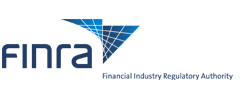
Michelle Ong (202) 728-8464
Nancy Condon (202) 728-8379
FINRA Fines COR Clearing LLC $1 Million for Extensive Regulatory Failures
Anti-Money Laundering, Financial Reporting and Supervisory Responsibilities Neglected Over Four-Year Period
WASHINGTON — The Financial Industry Regulatory Authority (FINRA) announced today that it has fined COR Clearing LLC (formerly Legent Clearing LLC), of Omaha, Nebraska, $1 million for numerous failures to comply with anti-money laundering (AML), financial reporting and supervisory obligations. COR is also ordered to retain an independent consultant to conduct a comprehensive review of its relevant policies, systems, procedures and training; to submit proposed new clearing agreements to FINRA for approval while the consultant conducts its review; and for one year, submit certifications from its Chief Executive Officer and Chief Financial Officer stating that each has reviewed the firm's customer reserve and net capital computations for accuracy prior to submission.
The violations were identified during multiple examinations of the firm during 2009 to 2013, and included numerous repetitive violations from year to year. This settlement resolves charges brought in an April 2012 FINRA complaint and additional violations discovered by FINRA during more recent examinations of the firm.
Brad Bennett, Executive Vice President and Chief of Enforcement, said, "COR's history of multiple violations in these key compliance areas resulted from its weak culture of compliance. This is particularly troubling given the amount of deposits and sales of low-priced securities through COR's introducing firms – a major area of concern for FINRA. Because COR is a clearing firm, its role as a gatekeeper to the securities markets makes it imperative that the firm meet its critical supervisory and internal control obligations."
COR provides clearing services for approximately 86 correspondent firms through fully disclosed clearing arrangements. As a clearing firm, COR performs order processing, settlement and recordkeeping functions for introducing broker-dealers that do not maintain back-office facilities to perform these functions. It services introducing firms with significant numbers of accounts, conducting activity in low-priced securities, as well as third-party wire activity. In its 2013 examination letter, FINRA identified microcap fraud and anti-money laundering compliance as regulatory priorities that it would focus on throughout the year because of the risk they pose to investor protection and market integrity. FINRA specified the importance that firms monitor customer accounts liquidating microcap and low-priced OTC securities to ensure, among other things, that the firm is not facilitating, enabling or participating in an unregistered distribution.
FINRA found that COR's AML surveillance program did not reasonably address the risks of its business model. These types of accounts present a higher risk of money laundering and other fraudulent activity. In addition, many of these correspondent firms had been the subject of past disciplinary action for AML-related rule violations. Notwithstanding the heightened AML risk, FINRA found that COR's surveillance program failed to identify "red flags" related to its correspondent firms and transactions by their customers.
Specifically, FINRA found that for several months in 2012, COR's AML surveillance system suffered a near-complete collapse, resulting in the firm's failure to conduct any systematic reviews to identify and investigate suspicious activity. FINRA also found that in 2009, COR implemented a "Defensive SARS" program, which the firm used to file suspicious activity reports without first completing the investigation necessary to support filing the report.
FINRA also found that COR made numerous financial reporting errors over the four-year period, including repeatedly making erroneous customer reserve and net capital computations, and filing inaccurate FOCUS reports with FINRA. In addition, FINRA found that COR had committed an extensive list of supervisory violations, including failing to establish adequate supervisory systems relating to Regulation SHO, the outsourcing of back-office functions, and the firm's funding and liquidity. Finally, FINRA found that COR failed to retain and review emails of one of its executives and failed to ensure that its president was properly registered as a principal.
In concluding this settlement, COR neither admitted nor denied the charges, but consented to the entry of FINRA's findings.
Investors can obtain more information about, and the disciplinary record of, any FINRA-registered broker or brokerage firm by using FINRA's BrokerCheck. FINRA makes BrokerCheck available at no charge. In 2012, members of the public used this service to conduct 14.6 million reviews of broker or firm records. Investors can access BrokerCheck at www.finra.org/brokercheck or by calling (800) 289-9999. Investors may find copies of this disciplinary action as well as other disciplinary documents in FINRA's Disciplinary Actions Online database.
FINRA, the Financial Industry Regulatory Authority, is the largest independent regulator for all securities firms doing business in the United States. FINRA is dedicated to investor protection and market integrity through effective and efficient regulation and complementary compliance and technology-based services. FINRA touches virtually every aspect of the securities business – from registering and educating all industry participants to examining securities firms, writing rules, enforcing those rules and the federal securities laws, informing and educating the investing public, providing trade reporting and other industry utilities, and administering the largest dispute resolution forum for investors and firms. For more information, please visit www.finra.org.
